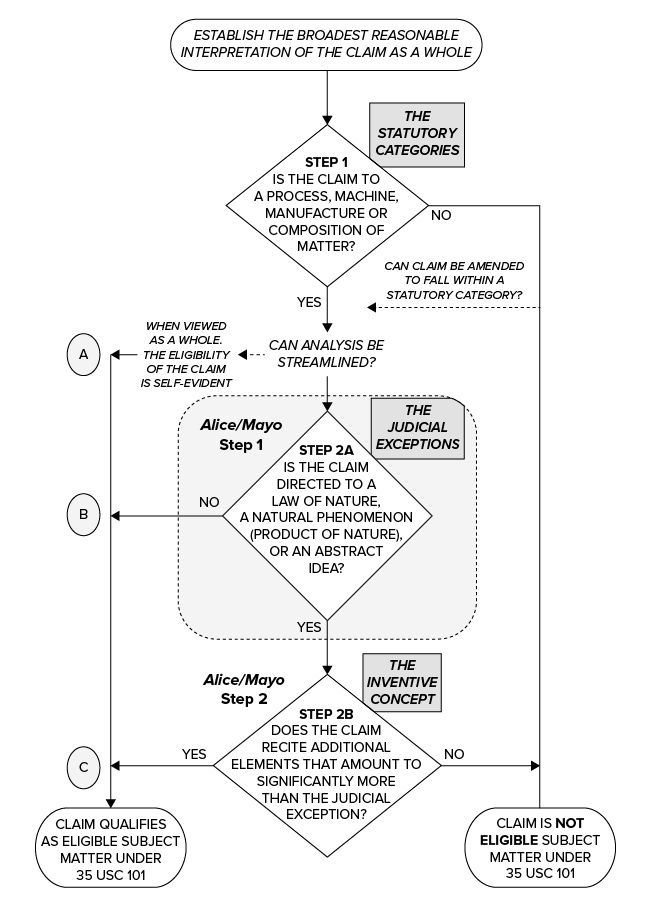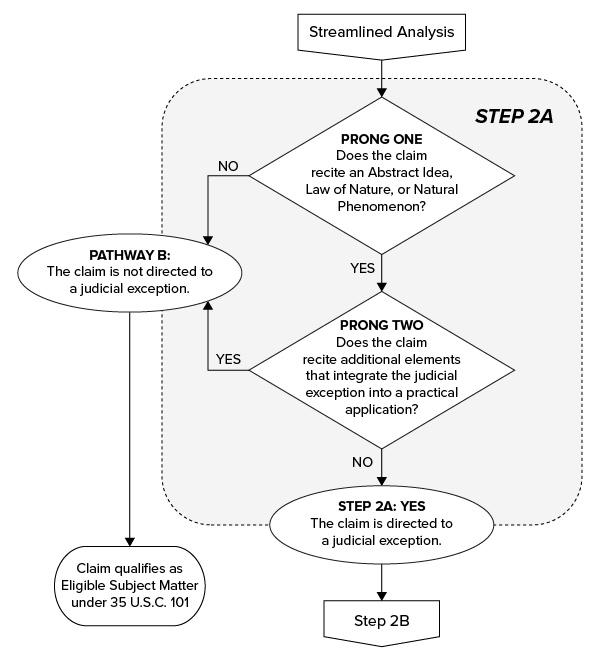NEWS
New FishFAQ video: The Patent Process Overview
We have recently added another video to our FishFAQ video series on patents. This one covers a basic overview of the U.S. patent process.
You can find the entire FishFAQ video playlist at our Youtube channel: https://www.youtube.com/@fishiplaw
New FishFAQ video: The History of Patents
We have recently added another video to our FishFAQ video series on patents. This one covers a brief history and development of patents.
You can find the entire FishFAQ video playlist at our Youtube channel: https://www.youtube.com/@fishiplaw
New FishFAQ video: Patent Families
New FishFAQ video: Patent Pending
We have a new FishFAQ™ video explaining the term “patent pending”, when it can be used, and some considerations to keep in mind when using the term.
You can find all the videos in our FishFAQ video series here: https://www.youtube.com/@fishiplaw
TRUMP TOO SMALL Trademark Refusal is not First Amendment Violation
The Supreme Court recently decided, in Vidal v Elster, that the TTAB’s refusal to register the TRUMP TOO SMALL mark, was not a violation of First Amendment rights.
Registration Application and Refusal
Back in 2018, Steve Elster sought to register a mark of “TRUMP TOO SMALL” as a t-shirt slogan, inspired by an exchange between Trump and Marco Rubio during the 2016 Republican primary. The PTO examiner refused on the grounds that the mark violated the ‘names clause’ of the Lanham Act, which requires written consent for a mark containing the name of a living individual. Elster countered that the ‘names clause’ was a violation of his first amendment free-speech rights, but the examiner responded that refusing registration doesn’t constitute a restriction on free speech. For reference, the PTO has also refused trademark registrations on “WELCOME PRESIDENT BIDEN”, “I STUMP FOR TRUMP”, and “OBAMA PAJAMA”.
Elster appealed the decision before the Trademark Trials and Appeals Board, but the TTAB affirmed the original decision barring Elster from registering the mark.
Federal Circuit in Re: Elster (Feb 24 2022)
Elster appealed the TTAB decision before the Federal Circuit. The Court noted that section 2 of the Lanham Act requires the PTO to refuse registration of certain categories of proposed trademarks. But in the last five years, the Supreme Court held two provisions in section 2 unconstitutional.
While the Federal Circuit acknowledged the TTAB’s point that the registration bar doesn’t “prevent Elster from communicating his message, it can legally disadvantage the speech at issue here.”
The Fed Circuit stated that it is one of the prerogatives of American citizenship to criticize public men. In fact, the first amendment has its fullest and most urgent application to speech concerning public officials. Therefore, suppressing the right to praise or criticize governmental agents can’t be squared with the first amendment.
While this right was acknowledged by the TTAB, the government’s interest in protecting privacy and publicity rights was seen to outweigh it. The Federal court argued here that Trump, as a public political figure can’t expect privacy. It further noted that one of the fundamental reasons for trademarks in the first place is the need to safeguard against the dilution of commercial value of his name, and that was not applicable here either. In summary, the government had no valid publicity interest that could overcome the first amendment protections afforded to the political criticism in Elster’s mark. As such, the Federal Circuit reversed the TTAB’s decision.
Vidal v Elster before Supreme Court
In 2023, the Supreme court agreed to review the judgment in order to resolve whether the Lanham Act’s names clause violates the First Amendment.
The Supreme Court considered the issue as distinguishing between content-based, and content-neutral regulations of speech.
Content-based regulations target speech based on its communicative content and is presumptively unconstitutional. Viewpoint discrimination targets not merely subject matter, but particular views taken by speakers on the subject. Trademark restrictions that discriminate based on viewpoint violate the first amendment.
Because the names clause doesn’t single out a trademark based on the specific motivating ideology or the opinion of the speaker, it doesn’t facially discriminate against any viewpoint. But it may still be found to discriminate on viewpoint in its practical operation. Elster suggested this was the case here because it would be easier to obtain a mark if it flattered rather than mocked a subject. But there are many reasons why a person might want to withhold consent to register a trademark bearing his name.
While the names clause is not viewpoint based, it is content based because it applies to particular speech because of the topic discussed or the message expressed, so it turns on whether the proposed trademark contains a person’s name.
The Supreme Court reasoned that although a content-based regulation of speech is presumptively unconstitutional, it had not decided whether heightened scrutiny extends to a content-based, but viewpoint-neutral, trademark restriction. Trademark rights have always coexisted with the first amendment, and the inherently content-based nature of trademark law has never been a cause for constitutional concern.
Restrictions on trademarking names have historically been grounded in the notion that a person has ownership over his own name, and that he may not be excluded from using that name by another’s trademark. So the court issued a narrow decision that, in this instance, the particular restriction does not violate the first amendment.
USPTO AI subject matter eligibility guidance
The US Patent Office continues to issue guidance on subject matter eligibility under 35 USC 101. This latest July guidance addresses AI-assisted inventions, and adds very little to what we already know. Basically, AI cannot be named as an inventor, and otherwise AI-assisted inventions are prosecuted the same as non-AI assisted inventions.
Invention Subject Matter Eligibility
All kinds of things are eligible for patentability under the guidelines of the USPTO: process, machine, manufacture, or composition of matter. There are some judicial exceptions that the courts have determined are the basic tools of scientific and technological work, and as such, are excluded from patentability since monopolization of these tools would tend to impede innovation more than promote it. Those judicial exceptions are laws of nature, natural phenomena, and abstract ideas.
But the courts have decided that if a patent claim can recite “additional elements” that integrate the judicial exception into a practical application, then such a claim can be eligible for patentability.
First Prong: Claims Directed Towards Judicial Exceptions
In the first prong, there is an evaluation of whether a claim recites an abstract idea.
It is common for claims to AI inventions to involve abstract ideas, but PTO personnel must draw a distinction between a claim that recites an abstract idea, and one that is merely based on an abstract idea.
The USPTO has defined three groupings of abstract ideas: mathematical concepts, methods of organizing human activity, and mental processes.
Mathematical concepts
The mathematical concepts abstract idea grouping is defined as mathematical relationships, mathematical formulas or equations, and mathematical calculations. The claim limitations do not fall within the mathematical concept grouping if it is only based on, or involves, a mathematical concept.
Methods of Organizing Human Activity
The certain methods of organizing human activity abstract idea grouping describes concepts related to fundamental economic principles (including hedging, insurance, mitigating risks); commercial or legal interactions (including agreements in the form of contracts, legal obligations, advertising, marketing or sales activities or behaviors, and business relations); and managing personal behavior or relationships or interactions between people (including social activities, teaching, and following rules or instructions).
Mental Processes
The courts consider a mental process (thinking) that can be performed in the human mind, or by a human using a pen and paper, to be an abstract idea.
Second Prong: Additional Elements
If the claim under evaluation is directed towards one of these judicial exception areas, then the second prong of the evaluation is to identify whether there are any additional elements that would integrate the exception into a practical application. Many claims to AI inventions are eligible as improvements to the functioning of a computer or improvements to another technology or technical field. While the courts haven’t provided an explicit text for how to evaluate the improvements consideration, they have instead illustrated how it is evaluated in numerous decisions.
A key point of distinction for AI inventions is between a claim that reflects an improvement to a computer or other technology (eligible) and a claim in which the additional elements amount to no more than a recitation of the words “apply it” or are no more than instructions to implement a judicial exception to a particular technological field (ineligible).
Eligibility and AI-assisted Inventions
AI assistance is not a consideration in subject matter eligibility analysis. Patent protection can be sought for AI assisted inventions where one or more persons made a significant contribution to the claimed invention. The current guidance does not provide for recognition of tools like AI for inventorship purposes.


The Power of Arbitration Agreements in Patent Royalty Disputes
The recent case, Zimmer Biomet Holding v Insall, resulted in a judgment requiring the licensee to continue paying royalties even after expiration of patent upon which the license agreement was predicated. The holding is clearly in conflict with Supreme Court precedent, but was upheld anyway based upon the arbitrator’s unreviewable interpretation of the underlying agreements.
The Precedents: Brulotte and Kimble
There are two key precedents at issue in the Zimmer dispute: Brulotte v Thys, and Kimble v Marvel.
In Brulotte, the Supreme Court held that it is unlawful per se to have a royalty agreement extending beyond the expiration date of the patent. This was called the Brulotte rule. The rule was widely criticized at the time (1964), and the rule continued to receive criticism through the years. In Kimble (2015), the Court provided a carve out: “post-expiration royalties are allowable so long as tied to a non-patent right”.
The Royalty Agreements
The dispute between Zimmer and Insall centered around a license to a knee replacement technology. The original 1991 agreement defined specifically that Zimmer would pay royalties to Insall on the sale of products covered by Insall’s patents. In 1998, the agreement was updated to include a statement that 1% of royalties would be calculated on sales of Zimmer’s NexGen Knee family of products, not necessarily covered by the patents.
The Case: Zimmer v. Insall
After the Insall patents expired in 2018, Zimmer stopped royalty payments, but continued to sell the products. When challenged, Zimmer argued that Brulotte rendered any post-expiration royalties unenforceable.
The parties went to arbitration in 2019, and the arbitration panel sided with Insall. The amendments to the royalty agreement effectively divorced royalties from Insall’s patents, and instead married them to NexGen marketing.
The issue was brought to the district court when Zimmer tried to get the arbitration award vacated on the basis that it violated the public policy established in Brulotte. The Insall estate motioned to dismiss and asked the court to uphold the arbitration’s decision. The district court agreed with the Insall estate and confirmed the arbitration award.
Zimmer then appealed this to the Seventh Circuit court. The Circuit court stressed that “arbitration awards are largely immune from…scrutiny in court” under the Federal Arbitration Act. Under that act, arbitration awards can generally only be appealed on very narrow grounds, including a public policy exception where the award violates some well-defined and dominant, explicit public policy, an arbitral award can be vacated. And even then, a court is bound by the arbitrator’s interpretation of the underlying contract in such an evaluation.
The Consequence
The essential question was what the royalties were based on. If they were based on Insall’s patent rights, as the original 1991 royalty agreement stipulated, then the agreement was unenforceable under Brulotte. If they were based on non-patent rights, as the 1998 amendment stipulated, they would be permissible under Kimble.
The Circuit court decided the 1998 amendments were within the arbitrator’s unreviewable authority.
Zimmer tried arguing that the amendment changed how the royalties were calculated, not why they were paid in the first place. But the court noted an “arbitration clause delegates interpretive power to the arbitrators. We don’t ask whether they read the language correctly, it is enough that they tried to apply the contract that the parties signed.”
